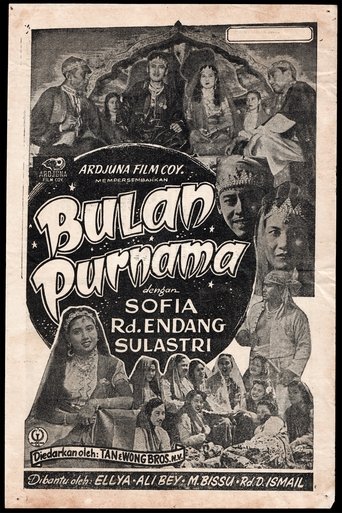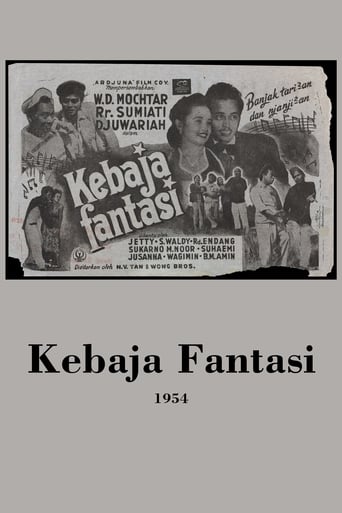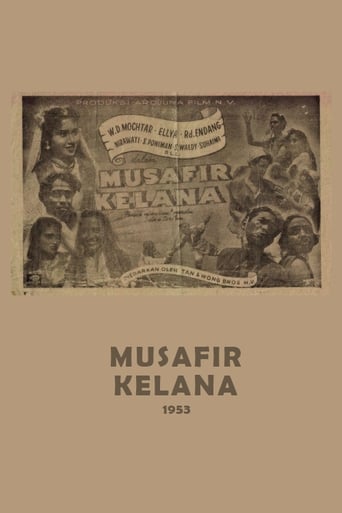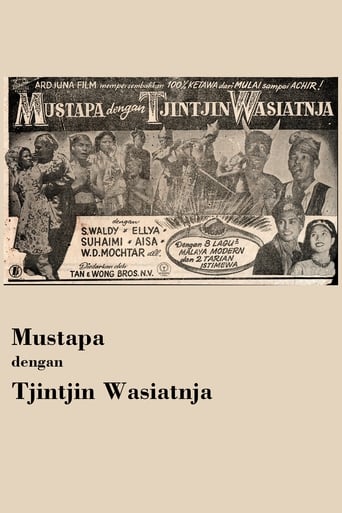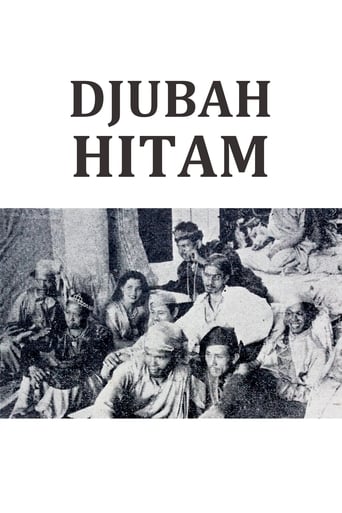Bulan Purnama 1953
Prince Citra wants to replace the dying King Basilam. He threatens the queen that he will kill the baby in her womb if it turns out to be a boy. To save her son's life, the queen switches him with a baby girl, and she names her Princess Amidra. Taruk brings her son to Talisajan Island on the queen's order. Amir, Taruk's brother, nurtures the baby and he is named Hasan. After Hasan grows up, Amir tells him his true identity. So Hasan sets sail to the palace. Then, assisted by Taruk, Hasan gains the support of the people. Citra is dethroned, and Hasan takes his rightful place as the king. He marries Amidra, who turns out to be the daughter of a minister.
